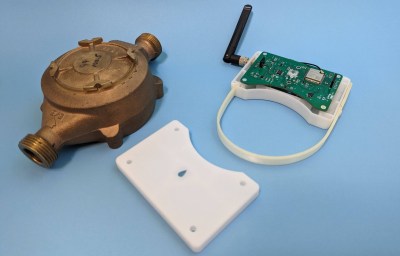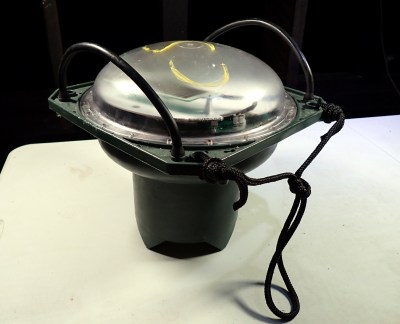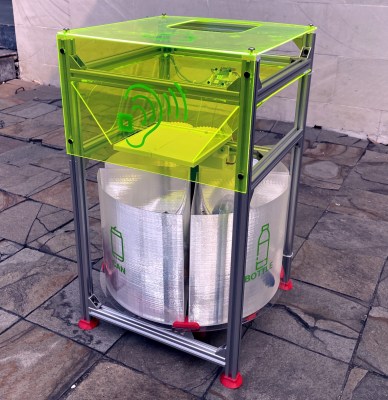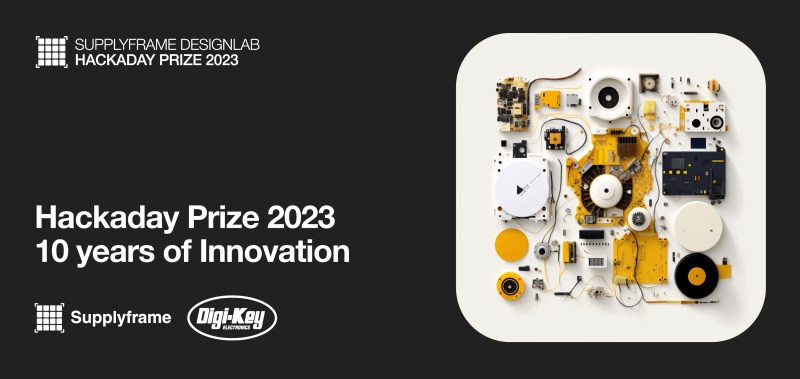Time and tide wait for no hacker, even if they happen to spend their spare time working on the sort of eco-friendly projects that qualified for the Green Hacks challenge of the 2023 Hackaday Prize. This environmentally conscious round ended last month, and after plenty of carbon-neutral debate, our panel of judges have settled on their ten favorite projects.
As a reminder, the following projects will not only receive a $500 cash prize, but will move on to the Finals. They’ll then have until October to put the finishing touches on their creations in an effort to claim one of the final six awards, which includes the Grand Prize of $50,000 and a residency at the Supplyframe DesignLab. Although there can only be ten finalists for each round of the Hackaday Prize, we’d like to thank everyone who put the time and effort into submitting their Green Hacks. We’ve only got one Earth, and we’re all going to have to work together if we want to make sure it stays beautiful for future generations.
Our Most Precious Resource
Life as we know it requires water, lots and lots of water. Which makes sense, as our particular ball of rock happens to be largely made up of the stuff. But though it might seem like water is an inexhaustible resource, that’s no excuse not to make sure it isn’t being wasted.
 That’s where projects like YDrip, the open source water meter, come in. The YDrip doesn’t replace your existing water meter — that would not only be difficult for the average home owner, but run afoul of your local municipality. Instead it straps to the side of it, and uses a ALT021-10E ultra sensitive tunneling magnetoresistance (TMR) sensor to detect the rotation of the wheel inside. The resulting data can be utilized wherever and however the homeowner wishes, unlike commercial offerings which usually tie you into into some specific service. Additionally, the YDrip can perform onboard analysis of the data and provide alerts if a water leak is detected.
That’s where projects like YDrip, the open source water meter, come in. The YDrip doesn’t replace your existing water meter — that would not only be difficult for the average home owner, but run afoul of your local municipality. Instead it straps to the side of it, and uses a ALT021-10E ultra sensitive tunneling magnetoresistance (TMR) sensor to detect the rotation of the wheel inside. The resulting data can be utilized wherever and however the homeowner wishes, unlike commercial offerings which usually tie you into into some specific service. Additionally, the YDrip can perform onboard analysis of the data and provide alerts if a water leak is detected.
Naturally, a device like the YDrip isn’t an option for everyone. Those living in apartments specifically wouldn’t have access to the water meter, and even if they did, in may end up multiple households are being metered together and simply splitting the bill for the total usage. That’s where Naveen’s Running Faucet Alert System comes in. This non-contact solution uses a microphone and machine learning to detect the sound of water running in a sink and provide an alert if its been running for an unusual amount of time. Since there could be concerns about having a mains-powered gadget around the sink, the energy consumption has been kept low enough that the whole system can run on batteries thanks to the use of a TensorFlow Lite model running on the Arduino Nano 33 BLE Sense. Obviously such a device won’t be as accurate as actually counting the revolutions of the water meter, but it can at least let you know if a faucet has become faulty or inadvertently left running.
 Of course, there’s more to taking care of Earth’s water supply than making sure it’s not being wasted in the home. To be proper stewards of our planet, we need to make sure the oceans are being protected. Unfortunately that can be a daunting , not to mention expensive, task.
Of course, there’s more to taking care of Earth’s water supply than making sure it’s not being wasted in the home. To be proper stewards of our planet, we need to make sure the oceans are being protected. Unfortunately that can be a daunting , not to mention expensive, task.
Looking to provide an affordable and scalable solution to this problem, Brett Smith is exploring the idea of turning old echo sounder buoys into ocean monitoring stations. The key to the idea are Drifting Fish Aggregation Devices (DFADs), which the fishing industry uses to lure in various forms of sea life. To keep track of them, they generally have small solar-powered echo sounder buoys attached that can report their location via satellite. The DFADs are considered disposable, and as such, the buoys are available at little or no cost at the end of their useful life.
Brett argues that the cheap and robust buoys, combined with new open source internal components, would make for an ideal platform for marine research. This project demonstrates using the parts from these seagoing buoys to produce various aquatic monitoring devices, from an underwater camera that can keep a digital eye on reef health to roaming water quality monitors.
Green Home Helpers
The phrase “think globally, act locally” is often used in an ecological context, to remind us that even small changes at home can help solve problems at planetary scale. Several of our Green Hacks finalists are designed with this concept in mind, making various eco-friendly tasks easier and more accessible.
 For example, the AI Audio Classifier Recycle Bin from Samuel Alexander can automatically sort recyclable materials based on the sound they make when they’re thrown in. A large drum with multiple compartments is mounted under the intake hopper, and rotates so the item will fall into the appropriate chamber. Even if every home doesn’t end up being equipped with a smart recycling bin, the project is a great way to raise recycling awareness.
For example, the AI Audio Classifier Recycle Bin from Samuel Alexander can automatically sort recyclable materials based on the sound they make when they’re thrown in. A large drum with multiple compartments is mounted under the intake hopper, and rotates so the item will fall into the appropriate chamber. Even if every home doesn’t end up being equipped with a smart recycling bin, the project is a great way to raise recycling awareness.
Growing fruits and vegetables at home is a great idea for many reasons, but isn’t always practical depending on your living situation. The UltraTower 2023 hopes to help solve this problem by simplifying vertical ultraponics. This highly efficient technique, sometimes referred to as “fogponics”, uses ultrasonic transducers to turn a nutrient solution into a mist that surrounds the plant’s roots.
With no soil and very little water required, ultraponics promises to be ideal in urban situations where the “farm” can only take up a couple square feet on a balcony.
Green Hacks Finalists
- Upcycled Echo Sounder Buoys
- mysoltrk – A Solar Tracker, Reinvented
- YDrip – Open Source Water Meter
- AlgaLite Living Lamp
- AI Audio Classifier Recycle Bin
- Solar Powered Park Bench
- ARM Devboard From Temperature Logger
- UltraTower 2023
- Bipolar Membrane Energy Harvester
- Running Faucet Alert System
Gearing Up Winds Down
Green Hacks might be over, but there’s still more challenges to come before the winners of the 2023 Hackaday Prize are decided. On August 8th the Gearing Up challenge will come to a close, which means a whole new set of finalists that will get to move forward. After that, we’ve got the final Wildcard challenge, where anything goes so long as it will have a positive impact on the world.
The Hackaday Prize wouldn’t be possible without the support of our sponsors, so we’d like to thank Supplyframe, DigiKey, and Protolabs for helping us bring these incredible ideas to life.


















Please be kind and respectful to help make the comments section excellent. (Comment Policy)